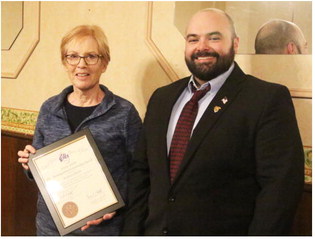Attorney General Fox Files Lawsuit Against State’s Largest Opioid Distributors
Attorney General Tim Fox announced Monday, Feb. 3, he has filed a lawsuit against the McKesson Corporation and Cardinal Health, Inc., two leading distributors of narcotic opioids, for their alleged role in the opioid crisis.
“Opioids have had a particularly acute impact on rural areas throughout the country, including Montana. As the two largest wholesale opioid distributors in the state, McKesson and Cardinal played a key role in fueling this devastating epidemic,” Attorney General Tim Fox said. “The increased volume of opioid prescribing and distribution correlates directly to skyrocketing addiction, overdose, and death; black markets for diverted prescription opioids; and an associated rise in heroin and fentanyl abuse by individuals who can no longer legally acquire or afford prescription opioids. It’s time to hold these companies accountable for their reckless behavior, which put profits ahead of public safety and fed our current wave of addiction and diversion, killing hundreds of Montanans,” Fox added.
Wholesale distributors buy prescription drugs, including narcotics, from manufacturers at enormous volumes and sell them to pharmacies. This allows pharmacies to quickly obtain a full range of prescription drugs from a single source, without having to manage relationships with multiple manufacturers. By law, distributors must stop shipments of suspiciously large or increasingly frequent orders and report them to state and federal authorities. Today’s lawsuit, filed in Lewis and Clark County District Court, details how both companies failed to alert authorities of suspicious opioid prescription orders they shipped into Montana between 2006 and 2014.
Opioid epidemic’s toll on Montana:
•From 2006 through 2011, Montana consistently ranked in the top 25 states for opioid sales on a grams per capita basis.
In 2014, the last year for which such data is available, Montana’s opioid sales ranking, per capita, rose to 17th among the 52 states and territories. Montana consistently ranked in the top 10 states per capita for distribution of morphine and hydromorphone (e.g., Dilaudid and Exalgo), and a fentanyl sales ranking that peaked at 7th in the nation.
•Montana’s opioid epidemic has caused more than 700 overdose deaths since 2000. From 2011-2013 alone, prescription drug overdoses were responsible for at least 369 deaths and more than 7,200 hospital inpatient admissions and emergency department visits.
•Opioids are the most common substance associated with drug poisoning deaths in Montana. Prescription drug abuse here is 15 times more deadly than methamphetamines, heroin, and cocaine combined.
The defendants dominate Montana’s wholesale drug distribution market. McKesson and Cardinal alone were responsible for approximately 63-68 percent of the opioids shipped into Montana from 2006 to 2014. In that timeframe, McKesson supplied more than 48 percent and Cardinal supplied more than 15 percent of the opioid dosage units to Montana. Together they distributed the equivalent, at 10 mg per pill, of over 432 million opioid pills into Montana between 2006 and 2014. That’s more than 400 estimated 10 mg opioid pills for every man, woman, and child in the state.
For the last several years, Fox and the Montana Department of Justice have addressed the epidemic of opioid- based painkiller abuse and addiction and its devastating effect on public health and safety in communities in Montana, starting with the Resolve Montana Prescription Drug Abuse Prevention campaign in 2014. Under Resolve Montana, the number of prescription drug disposal drop box locations were expanded across Montana to include pharmacies and hospitals. In 2017, Resolve Montana expanded into a new initiative, Aid Montana: Addressing the Impact of Drugs, in order to comprehensively approach the state’s substance abuse crisis by including alcohol and illegal drug use.
Three years ago, Fox filed a lawsuit against Purdue Pharma, alleging the company engaged in deceptive promotion of its addictive and dangerous painkiller OxyContin to increase sales. In February 2018, Fox filed a motion for a preliminary injunction in Montana District Court, asking the court to halt Purdue’s product marketing campaign in the state. Several months later, in an apparent effort to delay the case and avoid answering Montana’s motion for a preliminary injunction, Purdue moved the case to federal court. In August 2018, Montana achieved an important victory when a federal judge in Ohio remanded the lawsuit against Purdue Pharma from federal court and returned it to state court, where Fox’s office filed it originally. Purdue subsequently filed bankruptcy, after reaching a settlement in principle with numerous attorneys general valued at approximately $10 billion.
McKesson paid $13.25 million in 2008 and $150 million in 2017 in federal civil penalties for a total of approximately $163 million. Last year, McKesson also agreed to pay West Virginia a settlement of $37 million in relation to its lawsuit. Cardinal paid federal civil penalties of $34 million in 2008 and $44 million in 2016; in 2017, Cardinal also agreed to pay $20 million to resolve West Virginia’s civil suit, amounting to a total of $98 million that it has paid to resolve multiple actions.

